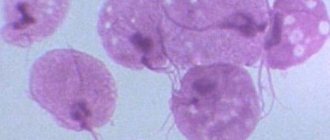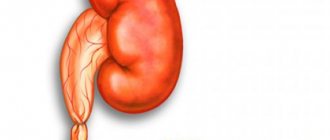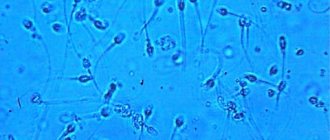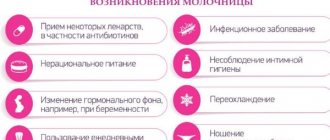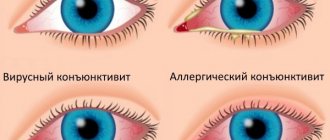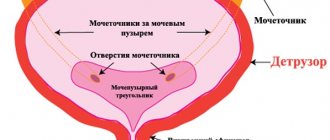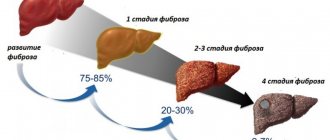Symptoms of cystitis in men depend on the form of the pathology. And the form of the disease is determined by a variety of causes. Cystitis occurs more often in women; this disease also occurs among men. Find the answer Are you having a problem? Enter “Symptom” or “Name of the disease” into the form, press Enter and you will find out all the treatment for this problem or disease.
The site provides reference information. Adequate diagnosis and treatment of the disease is possible under the supervision of a conscientious doctor. Any medications have contraindications. Consultation with a specialist is required, as well as detailed study of the instructions! Here you can make an appointment with a doctor.
More often, cystitis affects older people.
Types of cystitis
After lengthy research, it was possible to identify a number of classifications of types, as well as subtypes of cystitis. In medical encyclopedias you can find dozens of categories of this disease. Each of them has its own course, cause of occurrence and symptoms.
First of all, there are 2 types of inflammation (which are the same as in women):
- acute cystitis (the lining of the bladder becomes inflamed);
- chronic cystitis (in addition to the mucous membrane, the entire sublayer is irritated).
The next group classifies types according to the cause of occurrence into primary - in which the disease develops independently, and secondary (pathology manifests itself against the background of other diseases).
There are also infectious and non-infectious cystitis, which have their own subtypes. Infectious is divided into specific and nonspecific. Non-infectious has more divisions: allergic, nutritional, medicinal, radiation, toxic, thermal and chemical.
Important! In men, the chronic form, as well as the secondary form, is more often diagnosed. The acute type of the disease, according to statistics, is less common - approximately 7 cases out of 10 thousand. You can also read in detail about hemorrhagic cystitis.
What to do if the pills don't help?
In addition to drug intervention, therapy represents a whole range of measures:
- compliance with the drinking regime . You need to give up coffee and black tea in favor of clean water, green tea, natural juices and fruit drinks. A large amount of liquid will help quickly remove microorganisms and the products of their vital activity and decay.
- diet _ Exclude from the menu dishes that cause irritation to the mucous membrane: spicy, smoked, sour, salty. Avoid drinking alcohol and carbonated drinks.
- change of daily routine . The more time you spend in a warm bed, the sooner the discomfort will subside.
- warming up A heating pad or sitz baths are suitable for this purpose.
Only in this case is it possible to get rid of bladder inflammation easily and safely.
Causes of male cystitis
There are several factors that influenced the appearance of cystitis:
- formation of stones in the kidneys and urinary tract;
- venereal diseases caused by pathogenic microorganisms;
- urethral stricture;
- decreased immunity;
- hypothermia.
The source of infection in men is the prostate gland, epididymis, seminal vesicles and urethra.
The onset of the disease can be stagnation of urine, which is formed due to narrowing of the urethra in the presence of urological diseases. Often such ailments are: malignant tumor, diverticula, prostate adenoma, bladder stones and foreign body.
Moreover, the causes of non-infectious cystitis can be the treatment of diseases or certain procedures during which damage occurred. Prostate therapy using irradiation leads to complications in 5% of cases - post-radiation cystitis. It occurs as a result of radiation burns on the walls of the bladder.
The cause of infectious cystitis in men (as well as in women) is most often Pseudomonas aeruginosa and Escherichia coli, candidiasis, and staphylococcus. Or it can develop against the background of urethritis, prostatitis, vesiculitis. (We have already written about the symptoms and treatment of cystitis in women).
Many people are concerned about the question: is cystitis transmitted from woman to man? In some cases, the disease is caused by hidden infections of the body (chlamydia, mycoplasma, gonorrhea, trichomoniasis), they can be transmitted sexually. Therefore, it is impossible to infect a sexual partner with cystitis. Rather, you can acquire another infectious disease, which will bring no less harm and worries. In addition, it will cause inflammation of the urethra.
Important! By maintaining personal hygiene in men, the chance of developing cystitis is greatly reduced.
Any disease can cause a decrease in immunity, so it is important to seek help from specialists in a timely manner and not interrupt the prescribed treatment. Today, tuberculosis is widespread in our country. Injuries, stress, lack of sleep, and diabetes can also reduce the body's defenses. Microbes in the bladder can be due to sinusitis, flu and tonsillitis, despite the fact that they are diseases of the respiratory system.
Cystitis in men symptoms
The signs of such a pathology as male cystitis are similar to those of women.
Acute cystitis in men has the following symptoms:
- pain occurs in the penis, in the pubic and groin areas;
- the desire to empty the bladder frequently (every 10–15 minutes) persists;
- every urination process is accompanied by burning and stinging;
- the urge to urinate is also disturbing at night;
- the urine is cloudy, sometimes mixed with blood and purulent discharge, and may have an unpleasant odor;
- fever, pain in muscles and joints;
- general weakness, malaise.
The chronic form of the disease proceeds more calmly, without acute manifestations. The urge to urinate does not remind you so often, and the pain is much less. The general health of the patient is definitely better than with symptoms of acute cystitis.
If the pathology is latent, then it may not be detected at all. To make a diagnosis, it is necessary to carry out special diagnostics. But interstitial cystitis has absolutely the opposite symptoms. With it, the urge to urinate every hour is observed, and severe pain occurs in the suprapubic area. As a result, the patient becomes more irritable, anxious and prone to depression.
Diagnostics
To identify pathology of the urethra, you need to visit a urologist. It is this doctor who treats cystitis who will be able to examine and palpate the external genitalia. And through the wall of the rectum to examine for the presence of a prostate. At this stage, it will be possible to identify the involvement of adenomas, orchiepididymitis and inflammatory lesions of the prostate gland in cystitis.
Then laboratory tests are prescribed to clarify the causative agent and the nature of the inflammation.
- General urine analysis. Allows you to identify leukocyturia, hematuria, bacteria, mucus and protozoa.
- General blood analysis. The ability to determine the severity of developing pathology and detect features characteristic of certain subtypes of the disease.
- Bacteriological culture. After it is carried out, the causative agent of the disease and its sensitivity to antibacterial drugs are determined.
- PCR study and scraping. Using these tests, sexually transmitted infections are detected.
To establish the cause, men are prescribed to undergo instrumental studies: cystoscopy, cystography, urodynamic examination, uroflowmetry and ultrasound of the bladder.
Important! During the period of exacerbation of acute and chronic forms, ultrasound is not prescribed. Since it is not possible to completely fill the bladder with liquid.
Complications
It is important to understand that cystitis is a serious disease that, if not treated promptly, can lead to serious health problems, and in some cases to irreversible processes.
- Acute cystitis will become chronic.
- A decrease in bladder capacity may occur.
- Sexual dysfunction.
- The inflammatory process can spread to the kidneys (pyelonephritis), the urethra (urethritis), and the tissues surrounding the bladder.
To avoid serious consequences, you must consult a doctor and strictly follow all his prescriptions.
Treatment with medications
First of all, it is worth noting that any treatment must be agreed with the attending physician. Conservative methods include a complex of drugs. But it is worth noting that quick treatment will be achieved by observing bed rest, drinking plenty of fluids and eliminating spicy, salty and sour foods from the diet.
The test results make it possible to identify the pathogen, and at the same time its resistance to antibiotics. Fluoroquinols (Tsifran, Tsiprolet, Normax, Nolitsin) are often prescribed. Less commonly, nitrofurans (Furadonin) and antibiotics of a number of cephalosporins.
Be sure to include herbal medicine. If for any reason the patient is prohibited from taking teas, herbal medicines (Canephron, Cyston, Fitolysin) are prescribed.
Since this pathology is accompanied by pain and spasms, the use of painkillers cannot be ruled out. In this case, there will be Nosh-pa antispasmodic tablets. Their non-steroidal anti-inflammatory drugs are most often prescribed Nimesil.
It happens that specialists also prescribe bladder lavage. For such procedures, antiseptic solutions or novocaine blockades are used.
For treatment, not only drugs are used, but also physical procedures:
- treatment with therapeutic mud, applications;
- magnetotherapy and laser therapy;
- procedures using ultrasound;
- electrophoresis;
- inductothermy.
There are many nuances and features in the process of treating cystitis in men. This is influenced by the type, form and symptoms of the disease. During the examination, the urologist will definitely note what symptoms chronic cystitis has. Treatment can be not only conservative, but also through surgery. During which the prostate gland is excised.
It is worth paying special attention to how to cure radiation cystitis, tuberculous and interstitial. For radiation, local plastic surgery is performed. Therapy for tuberculous cystitis is supplemented with the intake of fish oil, PAS and saluzide. In interstitial cases, the overall complex is supplemented by hormonal and antiallergic drugs.
Natural based preparations
The choice of medications depends on the pathogen identified.
- Semi-synthetic drugs of the penicillin group.
- Tsphalosporins in tablets.
- Viral manifestations are eliminated with antiviral medications such as Amiksin.
- The fungal pathogen is destroyed by Fluconazole. For a fungal pathogen, you can use Nitroxoline. This is a well-known remedy that can also cope with germs.
- The more well-known and popular medicine for cystitis in men is Monural. Its results are felt after the first use. The drug has the ability to relieve inflammation in the bladder. The product is effective with a minimal set of side effects. Take it 3 mg once a day. The drug can remain active for two days.
- Palin is a pill for cystitis in men that fights many microorganisms that cause inflammation.
- Nolitsin - used for cystitis in men, provides quick treatment. You should drink it 1 tablet twice a day, in a course of three days. This antibiotic can penetrate the cell that infects the body and begins to destroy it inside. This medication is a fast and effective remedy. However, it is not suitable for everyone. It is not recommended for people with atherosclerosis or arrhythmia.
- Furadonin is a medication with antimicrobial and anti-inflammatory properties that affects all organs of the genitourinary system. It acts directly on the affected area.
- No-shpa.
- Spasmalgon.
You can get cystitis after infections appear in the intestines. To keep the microflora in a normal state, probiotics are prescribed.
For mild forms of bladder disease in men, as well as if chronic cystitis is being treated, herbal remedies are also used. They are sold in regular pharmacies. Herbal medicines are used in conjunction with antibacterial treatment. But before treating cystitis in men, you need to consult a urologist.
- Cyston is a diuretic. The drug is used to quickly relieve inflammation. Is a natural anti-inflammatory agent. It is recommended for men to take the tablets when they have stone formation. In addition to the enhancing effect of antibiotics, it removes small stones along with urine. It is usually taken 2 tablets twice a day.
- Monurel - tablets are made on the basis of cranberry extract with a high content of vitamin C. Indicated for the treatment of chronic cystitis in men. It is recommended to use it between attacks of exacerbation. Relieves inflammatory processes in the genitourinary system.
- Kanaferon - can increase the efficiency of the kidneys, enhances urine secretion, acts as an antiseptic, relieves spasms, and is good as an anti-inflammatory drug. Strengthens the effect of antibiotics. Used for chronic disease.
- Phytosilin is a paste-like preparation. Used as an antispasmodic and to remove urine.
Homeopathy treatment
Quite often, especially for home treatment, homeopathy is used. With their help, you can relieve pain and speed up the healing process. Specialists develop an individual set of drugs for each patient. Among them there are the most popular means that have proven themselves well.
- Mercurius corrzivus. Prescribed for prolonged urge. If there is mucus and pus in the urine. At night the temperature rises and makes you feel feverish. Blood is noticed in the scanty urine output.
- Cantharis. Intractable pain radiating to the back. Frequent urge to urinate. Excretion of urine in minute quantities mixed with pus. The patient is thirsty. Lower abdomen hurts. Exacerbation of cutting and burning.
- Sepia. Effective in chronic forms of the disease. The pathology is accompanied by false urges and problematic emptying of the bladder. Urine has an unpleasant odor and a cloudy sediment. During the period of illness, the patient has a feeling that the internal organs are being pulled down. Most often, sepia is prescribed for cystitis caused by E. coli.
- Berberis. Taken for pain in the pelvis during urination. The secreted fluid contains red sediment and mucus. The urine itself can often change shades: red, yellow, light. The pain penetrates the kidneys and spreads throughout the bladder.
Other homeopathic medicines are also used no less frequently: Capisitsum, Ignatia, Silicea, Solubilis, Bunzoicum Acidum and Nitricum, Aconitum, Apis, Argentum Nitricum, Arnica and Belladonna.
Treatment of chronic cystitis with homeopathy lasts no more than three months. With a more complicated form, the result is achieved in almost the same time.
Treatment with folk remedies
For quick treatment of cystitis at home, folk recipes will certainly be ideal. They mainly use decoctions and infusions of herbs that have diuretic, anti-inflammatory and analgesic properties. It’s not bad if the herbal mixture includes a plant to enhance immunity.
Traditional healers in the fight against pathology of the urethra recommend consuming a glass of pumpkin seeds daily.
Echinacea
An infusion of echinacea prepared from 1 tsp will also be useful for cystitis. plant, filled with 200 ml of hot boiled water. The infusion is allowed to stand for about three hours, and 100 ml is taken twice a day.
Flax seeds
A decoction of flaxseed can be effective in curing illness in males. To prepare it, take 1 tbsp. l. seeds and pour 200 ml of cold water. Place the flax on the fire and let it boil for 5 minutes. Take 3 times a day before meals, 1 glass.
Soda
Treatment with soda deserves special attention. It can have an antibacterial effect and relieve many symptoms of cystitis. Therapy is carried out by taking baking soda orally.
- To soothe the pain and eliminate the burning sensation, dissolve 2 tsp in a glass of warm boiled water. powder.
- The resulting solution must be drunk in small sips within a quarter of an hour.
After half an hour, it is recommended to take an analgesic and wash it down with two glasses of orange juice. After which it is recommended to place a heating pad on your stomach (for no more than 2 hours).
Nutrition for chronic cystitis
During the period of remission, there are generally no strict dietary restrictions. But there are still some recommendations that must be followed:
- limit the consumption of fatty and carbohydrate foods;
- focus on fermented milk products;
- eat wholemeal bread, unpackaged cereals, vegetables and fruits;
- Vegetable soups, freshly squeezed juices, chicken and lean meat are useful for cystitis;
- exclude from your daily diet foods that lead to irritation of the bladder walls (smoked meats, alcoholic drinks, canned food, seasonings, hot sauces).
Prevention
Now we understand: does cystitis occur in men? It remains to be seen: what to do to avoid the disease?
As a preventive measure, it is recommended to carefully monitor the hygiene of the genital organs. Avoid contracting sexually transmitted infections, avoid hypothermia, promptly treat cystitis at home and other diseases, strengthen your immune system and drink more fluids.
Since cystitis can be asymptomatic for quite a long period, undergo a medical examination more often. At the initial stage, the disease responds well to treatment.

